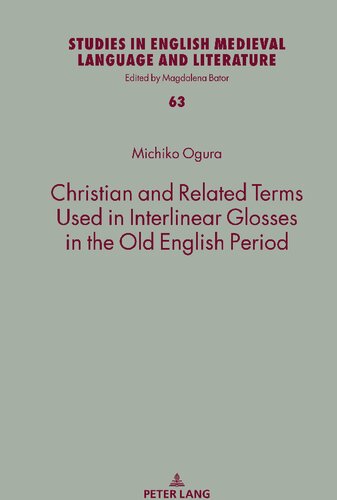

Most ebook files are in PDF format, so you can easily read them using various software such as Foxit Reader or directly on the Google Chrome browser.
Some ebook files are released by publishers in other formats such as .awz, .mobi, .epub, .fb2, etc. You may need to install specific software to read these formats on mobile/PC, such as Calibre.
Please read the tutorial at this link: https://ebookbell.com/faq
We offer FREE conversion to the popular formats you request; however, this may take some time. Therefore, right after payment, please email us, and we will try to provide the service as quickly as possible.
For some exceptional file formats or broken links (if any), please refrain from opening any disputes. Instead, email us first, and we will try to assist within a maximum of 6 hours.
EbookBell Team

4.0
36 reviewsThis monograph presents Old English renderings of Christian words found in interlinear glosses, especially the Gospels and the Psalter glosses. Nouns, adjectives, adverbs and verbs in biblical contexts are included through dialectal (Northumbrian, Mercian, and West Saxon) diachronic (early and late West Saxon) and idiolectal (i.e. scribal) comparison. By using interlinear glosses, the correspondence between the original Latin word and the Old English rendering can be recognised more clearly than in ordinary prose, and at the same time, a flexible choice of renderings can be seen in some contexts. The author tries to show which Old English words were chosen as renderings, while some Latin words were accepted without translation.